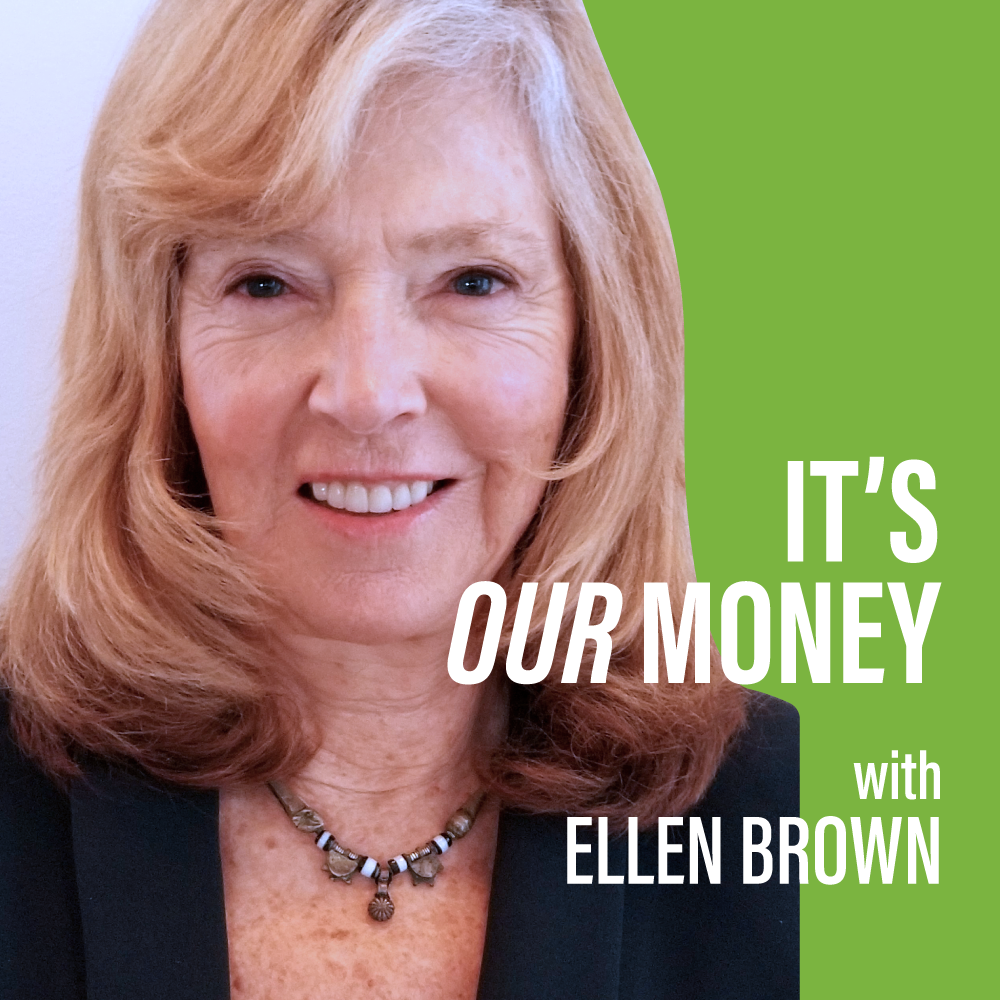This question is hotly contested. Traders in commodities futures say futures trading cannot drive up the physical price. It is the physical price that ultimately determines the futures price rather than the reverse. But there seems to be more to it than that. A number of good recent articles suggest that speculation is indeed largely responsible for the massive inflation in food and oil today. See, e.g. —
John Mauldin, “Colliding Bubbles, US Unemployment, the Credit Crisis and Oil Price Surge,” June 7, 2008 —
. . . I have been pondering for a few weeks about whether the long-only commodity index funds are really affecting the markets. Basically, these funds have become a huge part of the commodities market. It is clear that enough buying and in size will affect any market, but these funds do not take delivery. They “roll” their exposure as they get close to expiration, so they are not involved in the spot price. In theory, the spot price should be a function of immediate supply and demand.
But, it is not that simple, as Louis Gave reminded me. Looking at recent CFTC data, investors known as “commercials” were long 827 million barrels of oil. In the early part of the decade it was 3-400 million barrels. Commercials are supposed to be those who are hedging their production of oil. But large oil companies rarely hedge, and smaller producers only hedge a portion of their oil (see more below). Has supply increased over 100%? I think not.
Where is the increase in commercial interest coming from? The clear answer is long-only commodity index funds and ETFs. They simply buy baskets of commodities at whatever the price is, speculating on the rise in the price of the overall commodity market. It is a one-way trade . . . .
http://www.marketoracle.co.uk/Article4987.html
_________________________________________
See also —
Sam Pizzigati, “Oil Prices: A Case of Supply, Demand, and Speculation,” June 9, 2008 —
Looking for villains around the gas pump? Try looking behind the hedges to the shadowy investment world where the super-rich make bets with billions — and regular people always lose. . . .
Grand concentrations of private wealth, history tells us, have a nasty little habit of nurturing wasteful and witless speculation. Wasteful and witless speculation, news reports last week revealed, just happens to be the economic joker in the deck that’s turbocharging our current surge in crude oil prices.
The speculation now doing so much damage at America’s gas pumps comes mostly out of hedge funds, those shadowy mutual funds on steroids open only to the deepest of deep-pocket investors. This special status largely frees hedge funds from any federal financial oversight and regulation.
Hedge funds can essentially do whatever they choose. They typically make their money playing games with money. In the oil market, for instance, they have no interest in ever using the oil they sign “futures” contracts to buy. Instead, they buy and sell the futures contracts — with borrowed money. . . .
http://www.alternet.org/workplace/87474/
Philip Davis, “Commodities Prices: Speculation Exposed,” seekingalpha.com, May 21, 2008
“ICE, ICE, Baby”, Star-Telegram, May 19, 2008
Mario Osava, “Agriculture: What Is Really Causing ‘Agflation’? Ipsnews.net, May 4, 2008.
Filed under: In the News | 14 Comments »






THE SUBPRIME TRUMP CARD: STANDING UP TO THE BANKS
Ellen Brown, Articles, June 26th, 2008
More than 1.5 million homeowners are expected to enter foreclosure this year, and about half of them are expected to have their homes repossessed. If the dire consequences Jefferson warned of 200 years ago have been slow in coming, it is because they have been concealed by what Jerome a Paris calls the Anglo Disease – “the highly unequal economy whereby the rich and the financial sector . . . capture most of the income but hide it by providing cheap debt to the middle classes so that they can continue to spend.” . . . .
Read more here: http://www.webofdebt.com/articles/subprime_defense.php
Filed under: Ellen Brown Articles/Commentary | 11 Comments »